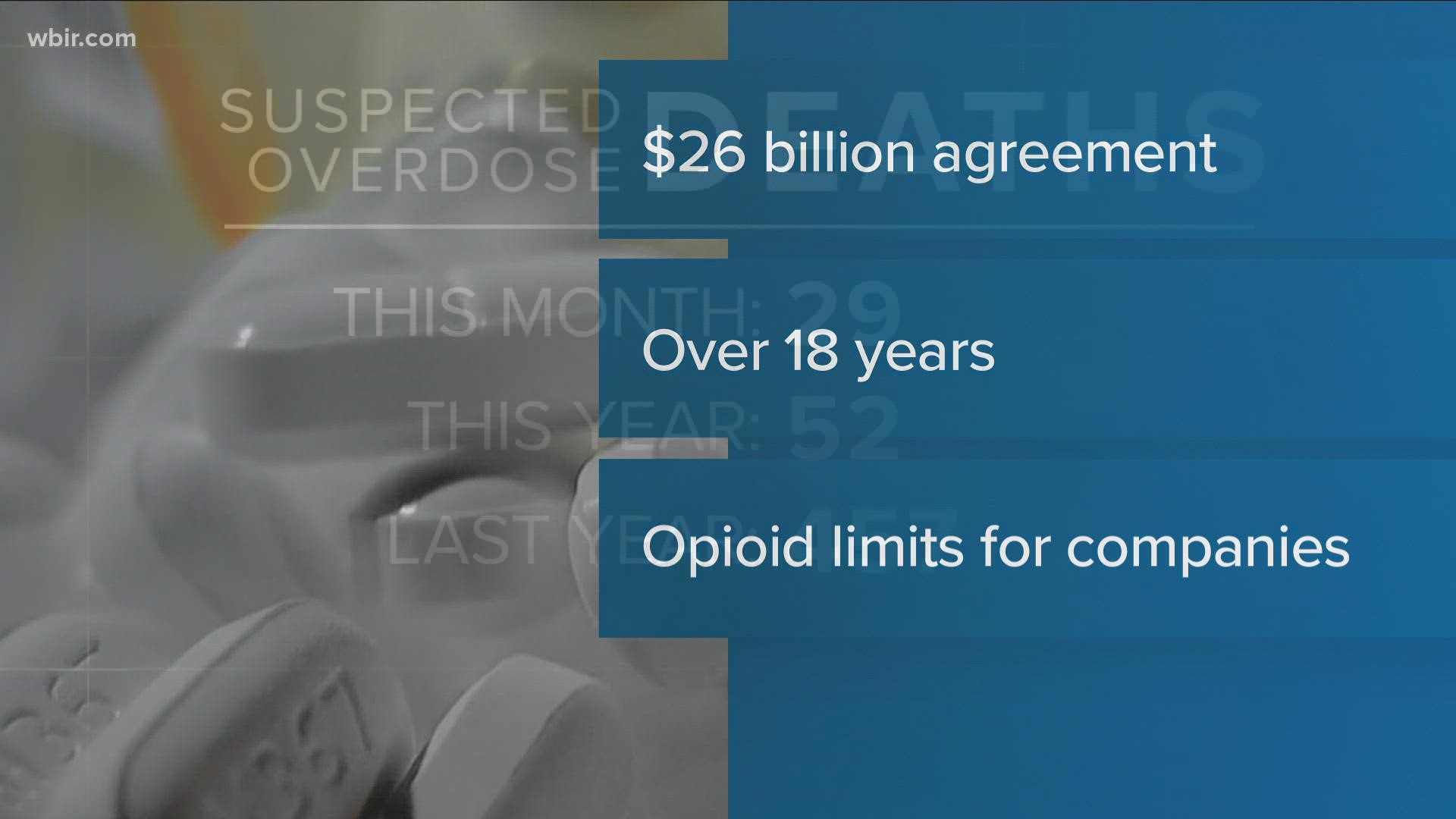NASHVILLE, Tenn. — Tennessee Attorney General Herbert Slatery announced the approval of a $26 billion multi-state opioid settlement with Johnson & Johnson and three major pharmaceutical disturbers Friday, the second-largest such agreement in U.S. history.
Slatery said Tennessee will receive $600 million of that payout over the next 18 years starting April 2, and most of that money will be used to battle the opioid epidemic across the state through measures such as funding state and local drug treatment and education programs.
52 states and U.S. territories signed on to the agreement. In Tennessee, more than 150 local governments joined the settlement, including all cities and counties with populations of 25,000 or more.
“Help is on the way,” said Slatery. “Our objective – and the reason we have aggressively held these companies accountable from the start- is to abate the crisis in Tennessee by providing direct assistance to those hit the hardest. We are grateful to our AG colleagues and our state and local leaders for their help and cooperation.”
The agreement comes after roughly three years of negotiations and more than 4,000 claims from state and local governments across the country over prescription opioid abuse. Drugmaker Johnson & Johnson and three major distributors -- AmerisourceBergen, Cardinal Health and McKesson -- were accused of contributing to the opioid epidemic across the country through the distribution of large quantities of pain pills. All four maintained no wrongdoing.
Slatery said the three distributors have agreed to take on additional measures alongside the payout, including:
- Establish a centralized independent clearinghouse to provide all three distributors and state regulators with aggregated data and analytics about where drugs are going and how often, eliminating blind spots in the current systems used by distributors.
- Use data-driven systems to detect suspicious opioid orders from customer pharmacies.
- Terminate customer pharmacies’ ability to receive shipments, and report those companies to state regulators, when they show certain signs of diversion.
- Prohibit shipping of and report suspicious opioid orders.
- Prohibit sales staff from influencing decisions related to identifying suspicious opioid orders.
Johnson & Johnson also agreed to end its opioid sales, cutting off funding and grants to third parties for promoting opioids, ceasing lobbying efforts on opioid-related activities, and sharing clinical trial data to the Yale University Open Data Access Project, Slatery said.
The agreement is the second-largest in U.S. history, next to the Tobacco Master Settlement Agreement of 1998, which as of 2020 had paid out more than $138 billion to states.

